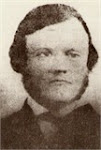I found this gem on Willim Cronon's website for his class History, Geography and Environmental Studies 460, American Environmental History
He also has website on learning to do historical research.
Everyone can benefit their writing from these rules.
"Rules for Writerers" (source unknown)
1. Verbs HAS to agree with their subjects.
2. Prepositions are not words to end sentences with.
3. And don't start a sentence with a conjunction.
4. It is wrong to ever split an infinitive.
5. Avoid cliches like the plague. (They're old hat.)
6. Also, always avoid annoying alliteration.
7. Be more or less specific.
8. Parenthetical remarks (however relevant) are (usually) unnecessary.
9. Also too, never, ever use repetitive redundancies.
10. No sentence fragments.
11. Contractions aren't necessary and shouldn't be used.
12. Foreign words and phrases are not apropos.
13. Do not be redundant; do not use more words than necessary; it's highly superfluous.
14. One should NEVER generalize.
15. Comparisons are as bad as cliches.
16. Don't use no double negatives.
17. Eschew ampersands & abbreviations, etc.
18. One-word sentences? Eliminate.
19. Analogies in writing are like feathers on a snake.
20. The passive voice is to be ignored.
21. Eliminate commas, that are, not necessary. Parenthetical words however should be enclosed in commas.
22. Never use a big word when substituting a diminutive one would suffice.
23. Kill all exclamation points!!!
24. Use words correctly, irregardless of how others use them.
25. Understatement is always the absolute best way to put forth earth-shaking ideas.
26. Use the apostrophe in it's proper place and omit it when its not needed.
27. Eliminate quotations. As Ralph Waldo Emerson said, "I hate quotations. Tell me what you know."
28. If you've heard it once, you've heard it a thousand times: Resist hyperbole; not one writer in a million can use it correctly.
29. Puns are for children, not groan readers.
30. Go around the barn at high noon to avoid colloquialisms.
31. Even IF a mixed metaphor sings, it should be derailed.
32. Who needs rhetorical questions?
33. Exaggeration is a billion times worse than understatement.
34. Avoid "buzz-words"; such integrated transitional scenarios complicate simplistic matters.
And finally...
35. Proofread carefully to see if you any words out
Thursday, November 25, 2010
Subscribe to:
Post Comments (Atom)
















Well done
ReplyDeleteReaderers and Writerers!
ReplyDeleteWe need a 'rules for readerers' as Pogo showed in his remark that he 'could write readin' but he couln't read writin'.
I'm sure we can all offer good rules like 'don't confuse simple sentences with easier to understand'.
"Well done"? Or maybe that is supposed to be 'well, done'.
ReplyDelete"Readerers and Writerers!We need a 'rules for readerers' as Pogo showed in his remark that he 'could write readin' but he couln't read writin'."
ReplyDeleteHow very, very true that are.
But my fave rules above are:
18. One-word sentences? Eliminate.
22. Never use a big word when substituting a diminutive one would suffice.
and....
13. Do not be redundant; do not use more words than necessary; it's highly superfluous.
Hmm, that seems vaguely familiar.
I had a professor who refused to grade any paper with a sentence that began with "It is" or "There are." As in "It is really difficult to know the particular grammar rules that will piss off your college professor" or "There are as many lists like this as there are professors."
ReplyDelete